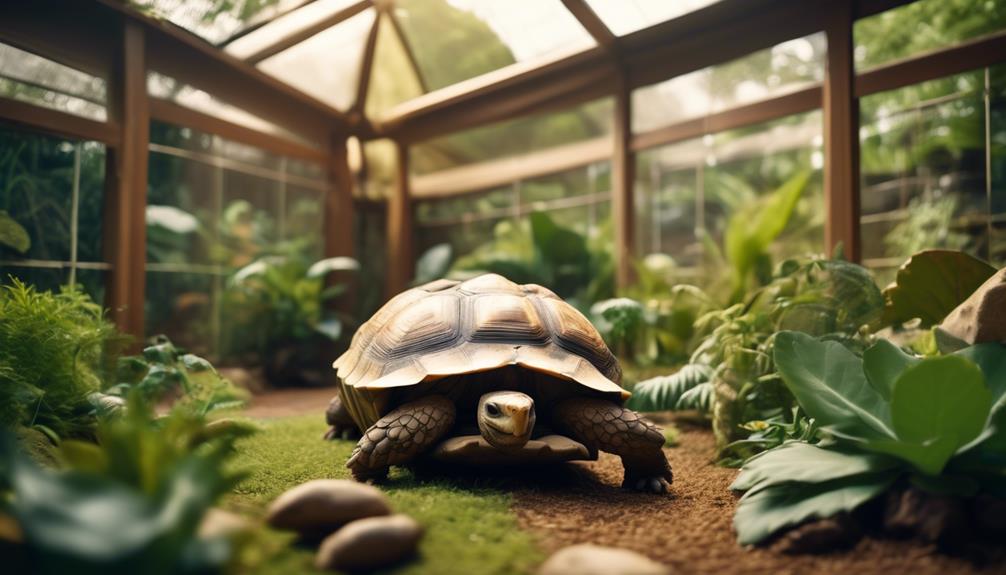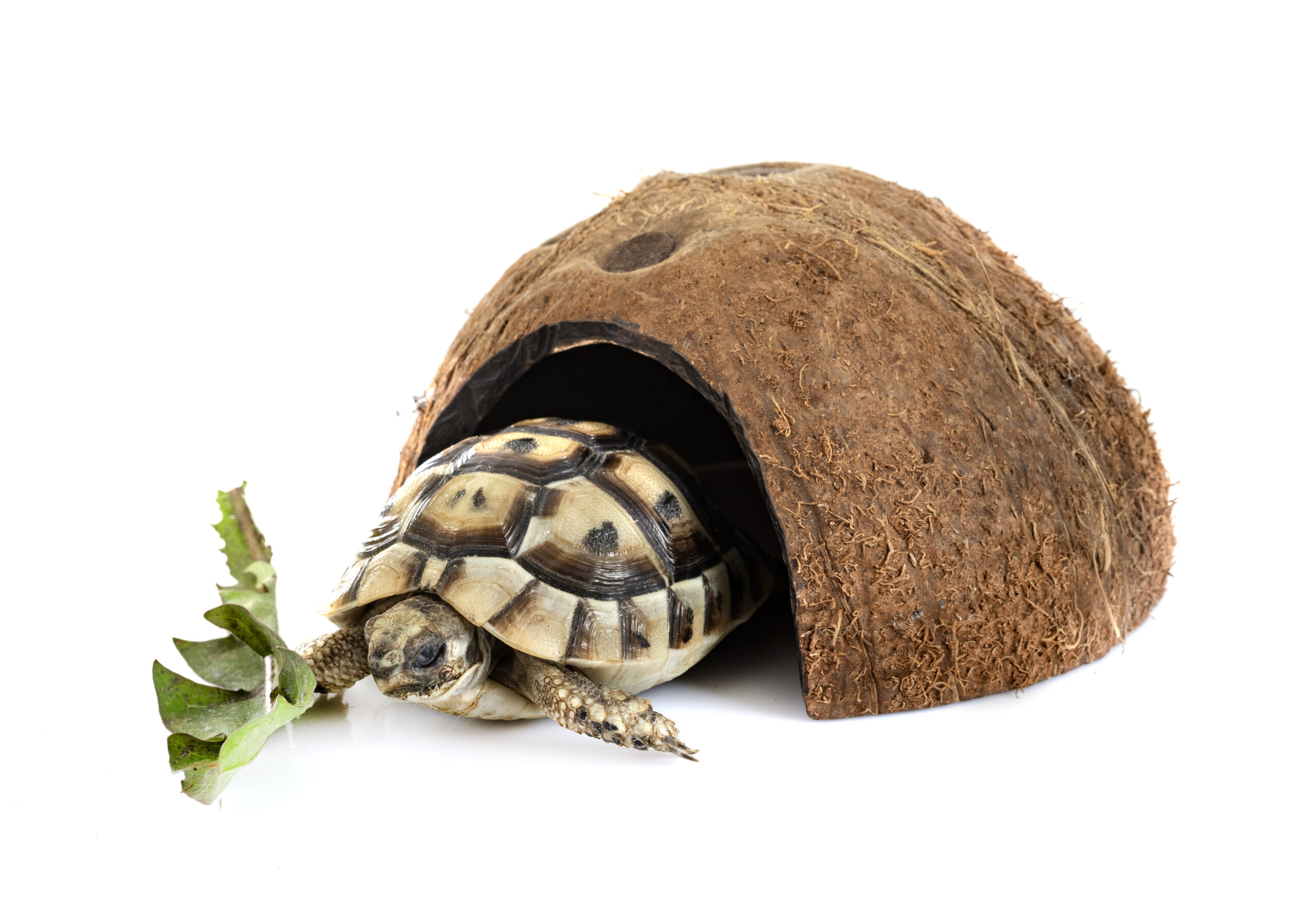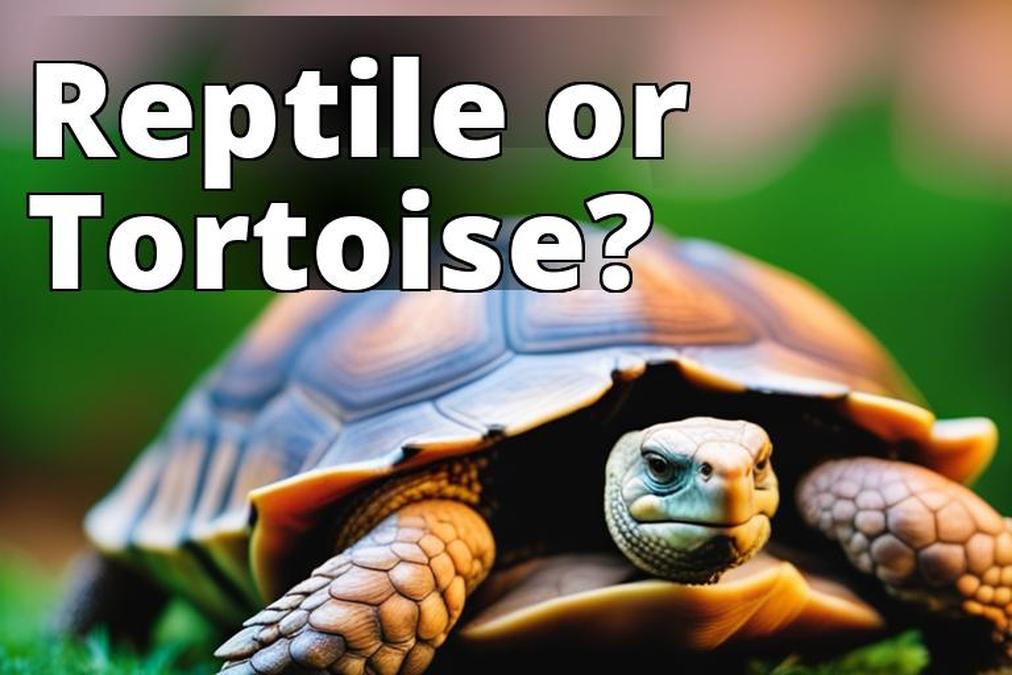If you are considering getting a pet tortoise, you may wonder, “Are tortoises easy to take care of?” This is a common question among those interested in reptile pets. Tortoises are fascinating creatures that can make great pets with proper care and attention. In this article, we will cover everything you need to know about tortoise care, including whether or not they are easy to take care of.
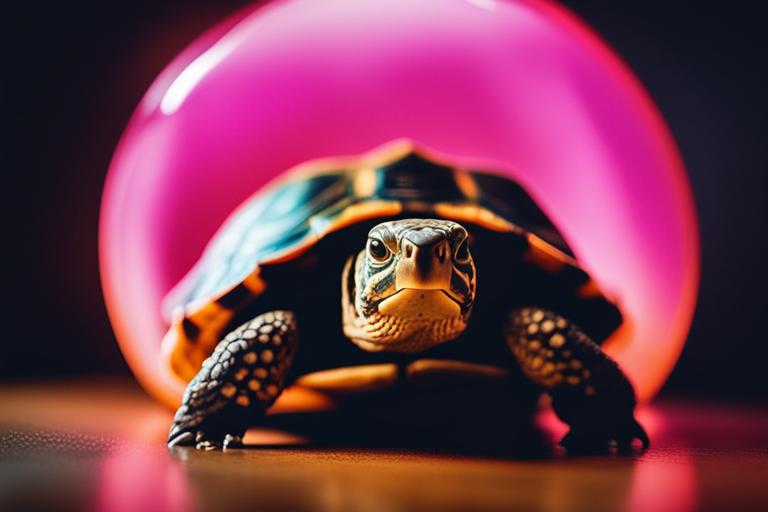
Understanding Tortoise Behavior
| Tortoise Species | Size | Lifespan | Diet | Habitat | Temperature |
|---|---|---|---|---|---|
| Russian Tortoise | 8-10 inches | 40-60 years | Dark leafy greens, fruits, hay, and grasses | Outdoor pen or indoor enclosure | 75-85°F during the day, 65-70°F at night |
| Sulcata Tortoise | 30 inches or more | 70-100 years | Grasses, hay, and a variety of vegetables and fruits | Large outdoor pen or indoor enclosure | 80-85°F during the day, 70-75°F at night |
| Red-Footed Tortoise | 10-14 inches | 30-50 years | Fruits, vegetables, and leafy greens | Large indoor or outdoor pen with hiding spaces | 75-85°F during the day, 70-75°F at night |
| Greek Tortoise | 5-7 inches | 50-70 years | Dark leafy greens, fruits, and vegetables | Outdoor pen or indoor enclosure with ample hiding spaces | 75-85°F during the day, 65-70°F at night |
Tortoises are cold-blooded animals that rely on their environment to regulate their body temperature. This makes it essential to provide them with a suitable habitat that meets their temperature and lighting needs. They also require a specific diet that is high in fiber and low in protein. Additionally, tortoises require clean water for drinking and soaking, which helps them to stay hydrated and healthy.
Tortoise Care: Are they Easy to Take Care of?
- While tortoises can be easy to care for, they do require proper care and attention.
- Tortoises have specific habitat, temperature, and lighting requirements, as well as feeding and hydration needs, which should be taken into account before getting one as a pet.
- It is important to understand tortoise behavior and provide a comfortable and safe environment to keep them healthy.
Are Tortoises Easy to Take Care of?
Tortoises are relatively low-maintenance pets, but they do require proper care and attention. They have specific needs when it comes to their habitat, diet, and health. For example, tortoises need a large enclosure that is suitable for their size and species. Once you have set up a proper habitat and understand their needs, tortoises are easy to take care of. They don’t require daily attention and are happy to spend most of their time basking in the sun or exploring their enclosure.

Setting Up a Tortoise Habitat
Setting up a tortoise habitat requires careful planning and consideration. The size of the enclosure will depend on the size of the tortoise, and it’s important to provide ample space for them to move around. Outdoor enclosures should be secure and protected from predators, while indoor enclosures should be large enough to provide adequate space for the tortoise to move around.
The enclosure should also be equipped with a basking area, which provides heat and UVB lighting. This is essential for the tortoise’s health and helps to regulate their body temperature and metabolism. Additionally, the enclosure should include hiding places and areas for the tortoise to explore.

Feeding Tortoises
Feeding tortoises can be relatively easy once you understand their dietary needs. Tortoises are herbivores, and their diet should consist of a variety of vegetables, fruits, and grasses. Some of the best foods for tortoises include dark leafy greens, carrots, squash, and berries. It’s important to avoid feeding them foods that are high in protein, such as meat or dairy products.
Tortoises should be fed daily, and their food should be supplemented with calcium and vitamins. It’s important to monitor their weight and adjust their diet if necessary to prevent overfeeding or obesity.

Hydration and Bathing
Tortoises require clean water for drinking and soaking. It’s important to provide a shallow dish of water in their enclosure, which should be cleaned and refilled daily. Additionally, tortoises may require occasional bathing to help keep their skin and shell clean and healthy. When bathing a tortoise, it’s important to use warm water and avoid getting water in their nose or mouth.
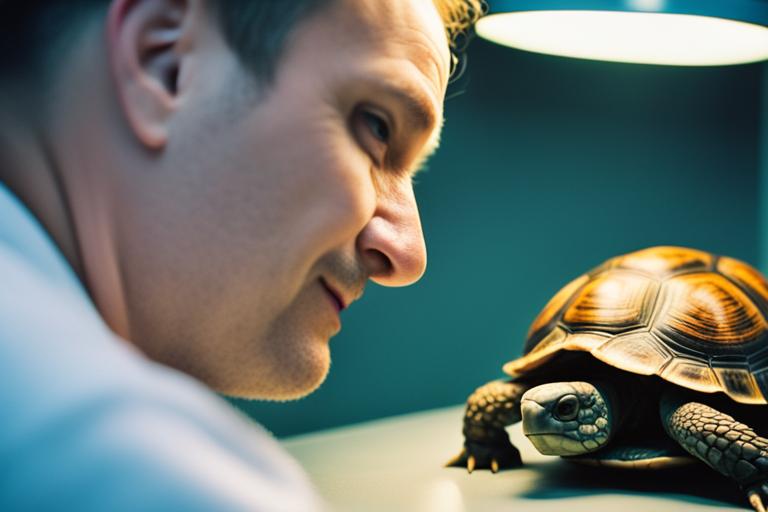
Health and Wellness
Like all pets, tortoises require regular check-ups and preventative care to stay healthy. It’s important to find a veterinarian who specializes in reptiles and have your tortoise checked at least once a year. Additionally, tortoises should be vaccinated and monitored for parasites, which can be common in captive animals.
Some of the common health issues that affect tortoises include respiratory infections, shell rot, and metabolic bone disease. These can be prevented by providing proper care and attention, including a suitable habitat, diet, and regular check-ups.
Personal Story: The Importance of Proper Tortoise Care
When I first got my tortoise, I thought it would be an easy pet to take care of. I quickly realized that I was wrong. Despite their reputation for being low-maintenance, tortoises require proper care and attention.
One day, I noticed that my tortoise wasn’t moving much and wasn’t eating. I took her to the vet, and they discovered that she had a respiratory infection that was causing her to be lethargic. The vet explained that this was a common issue among tortoises, especially those that were kept in enclosures that were too damp or not properly ventilated.
It was a wake-up call for me. I realized that I needed to be more diligent in providing the proper care for my tortoise. I made changes to her enclosure to ensure that it was properly ventilated, and I started monitoring the temperature and humidity levels more closely. I also made sure that she was getting the right diet and the appropriate amount of hydration.
Since then, my tortoise has been much healthier and more active. I’ve learned that while tortoises can be easy to care for, they do require proper care and attention. It’s important to take the time to understand their behavior and needs and to provide them with a comfortable and safe environment.
Conclusion
In conclusion, tortoises can make excellent pets for those who are willing to provide proper care and attention. By understanding their needs and behavior, setting up a suitable habitat, and providing a healthy diet and preventative care, you can ensure that your tortoise lives a long and healthy life.
Tortoises are living creatures that require proper care and attention. If you’re not prepared to provide the care they need, it may be best to consider a different pet. However, if you’re willing to put in the effort, a tortoise can be a wonderful addition to your family.
Insider Tip: “To keep your tortoise healthy, be sure to provide them with a balanced diet and proper lighting. Also, make sure to handle them gently and provide them with plenty of space to move around and explore.”
Common Questions
Question: Who can take care of a tortoise?
Answer: Anyone can take care of a tortoise with the right knowledge.
Question: What do tortoises eat?
Answer: Tortoises eat vegetables, fruits, and hay.
Question: How often do tortoises need to be fed?
Answer: Tortoises need to be fed once a day.
Question: What is the best habitat for a tortoise?
Answer: A large outdoor enclosure with shelter is best.
Question: How often do tortoises need to be bathed?
Answer: Tortoises only need to be bathed occasionally.
Question: What if I don’t have outdoor space for a tortoise?
Answer: Tortoises can be kept indoors with the right setup.





